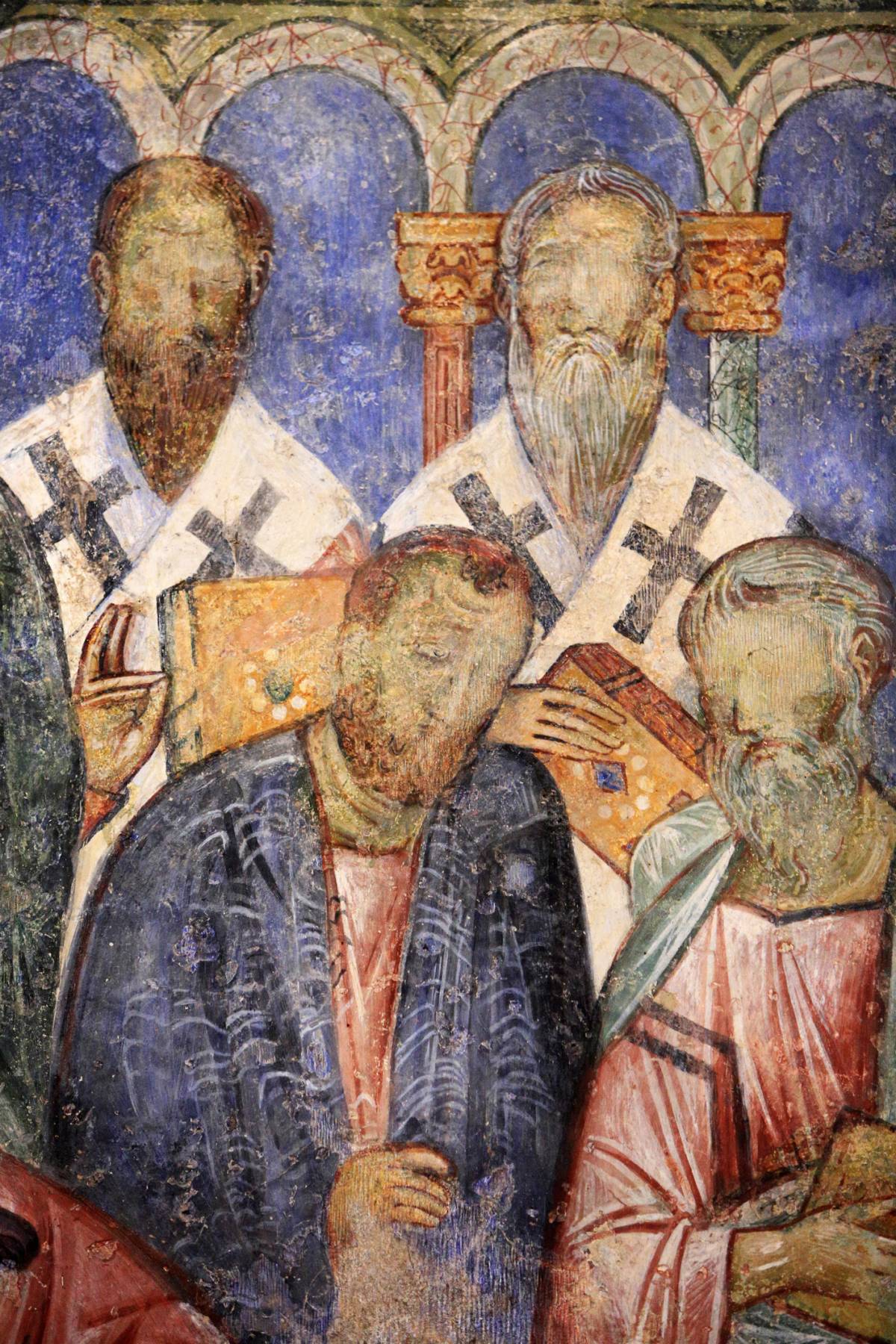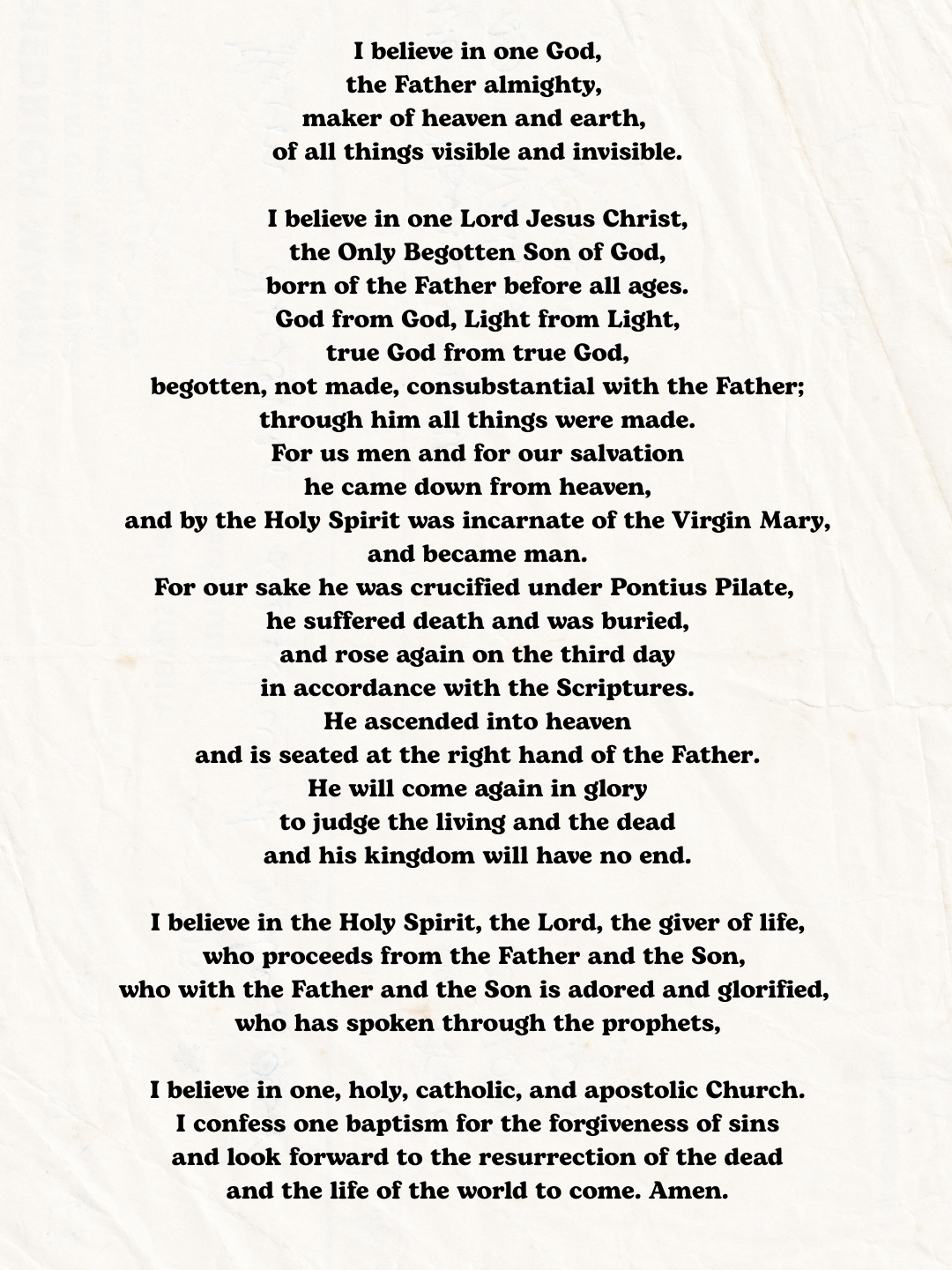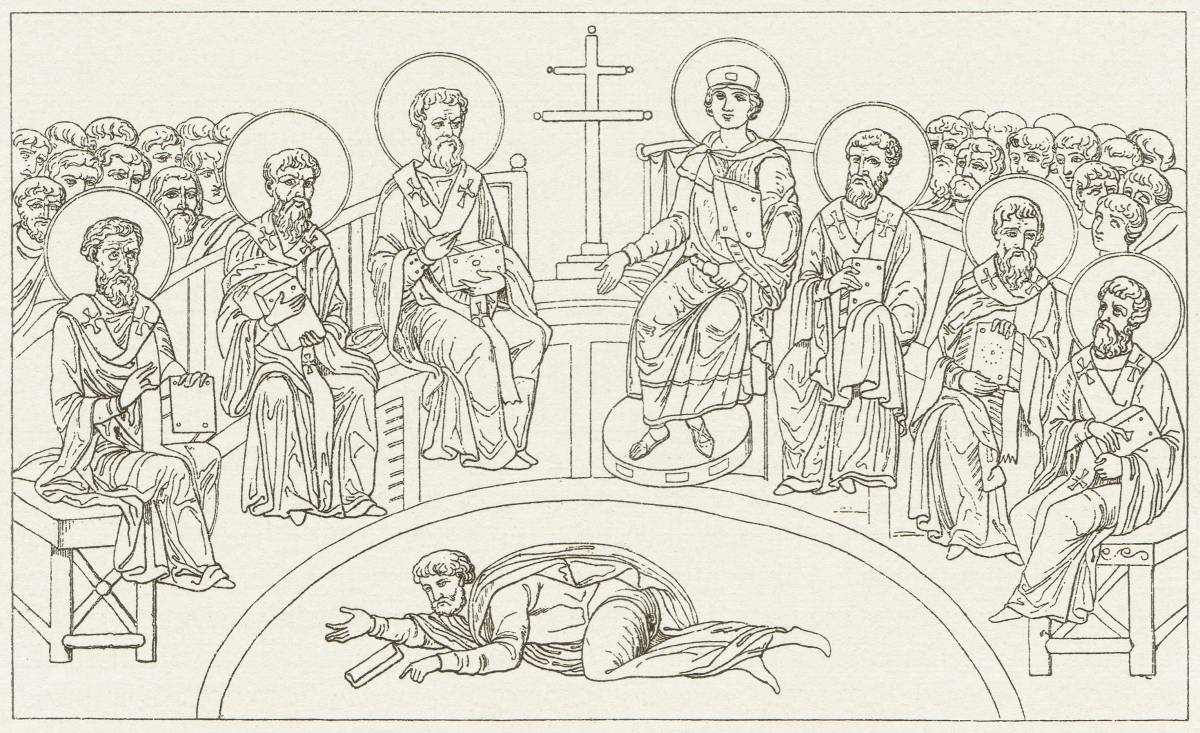If you were asked what it is that you believe in as a Christian, what do you say? That question is as ancient as our faith itself. The Church recognized early on that the average Christian needed a simple, clear way to express their belief to those who asked. The result is what we know as the Nicene Creed. It is as clear a statement of the fundamental and necessary beliefs that anyone who calls him or herself a Christian must believe in and practice to claim true Christian discipleship. The Nicene Creed was also written to help the average Christian understand and refute the then-menacing heresy of Arianism, which posed a powerful threat to the unity of the Christian Church. It was first composed by the church at the Council of Nicaea in 325 AD. The word ‘creed’ comes from the Latin verb ‘credo,’ meaning “I believe,” which is the opening statement of the Nicene Creed.

Nicene Creed

St. Cyril, the Bishop of Jerusalem, wrote the following instructions concerning the Nicene Creed in the year 350, saying, “In learning and professing the faith, you must accept and retain only the Church’s tradition, confirmed by the Scriptures. Although not everyone can read the Scriptures, some because they have never learned to read, others because their daily activities keep them from such study, still, so that their souls will not be lost through ignorance, we have gathered together the whole of the faith in a few concise articles.” The Church, recognizing what Cyril refers to here, that is, that most people, either because of illiteracy or lack of formal education, or because of the difficulties of their everyday lives, often cannot ‘study’ the Bible in depth. To address this, the Church saw the need for a simple, clear, complete statement about the fundamental core and necessary beliefs of the Christian faith that people could memorize, recite, and contemplate in accord with their own circumstances. Hence, the Nicene Creed was created.

Cyril continued his instruction saying: “Now I order you to retain this creed for your nourishment throughout life and never to accept any alternative, not even if I myself were to change and say something contrary to what I am now teaching, not even if some angel of contradiction, changed into an angel of light, tried to lead you astray.” He gently counseled that these simple words of the Creed be listened to and memorized, for their proofs can all be found in the Scriptures. “This summary of the faith was not composed at man’s whim; the most important sections were chosen from the whole Scripture to constitute and complete a comprehensive statement of the faith.” The Creed clearly references the importance of both Scripture and Tradition.
As the Bishop of Jerusalem, he tells his Christian flock to observe the words of the Creed scrupulously, “so that no enemy may rob any of you in an idle and heedless moment, let no heretic deprive you of what has been given to you. Quoting from the Scriptures, he writes, “I charge you before the God who gives life to all things, and before Christ who bore witness under Pontius Pilate in a splendid declaration, to keep unblemished this faith you have received, until the coming of our Lord Jesus Christ” (1 Timothy 6:13).

Cyril’s words are as instructive today as they were in the 4th Century. As Christians, we are all challenged to find both wisdom, encouragement, and solace in listening to, memorizing, and contemplating these fundamental statements of our Christian faith found in the Nicene Creed, so that our faith may continue to be strengthened and nourished as we continue on our pilgrim path toward the kingdom of God. The Nicene Creed is our faith in a nutshell. Thanks be to God.
SKM: below-content placeholderWhizzco for FHB

